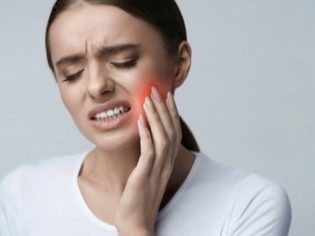Psychosomatics of Diseases by Liz Burbo
Psychosomatics - the direction of medicine, which is located on the border of psychology and traditional medicine. She studies the close connection between bodily ailments and the psychological problems that a person has. This connection was evident even to the doctors of ancient Greece, Sigmund Freud and Professor Bekhterev, Walter Breutigam and Paul Christian studied it at different times.
Liz Burbo is one of the important figures in the field of psychosomatic medicine. She owns the development of a whole system of identifying the causes of diseases and ways to eliminate them. In this article we will talk about Dr. Liz and her methodology in more detail.
about the author
Recently, in the psychosomatic medicine mainly professional doctors and qualified psychologists work. But Liz Burbo was not originally a doctor or a healer of human souls.
A native of Canada, she began her career back in 1966 as a sales specialist and achieved great success in this, reaching the position of regional manager at one of the largest Canadian enterprises from the bottom. And it's not that Liz really loved money. She loved people, and therefore rather quickly began to train employees in methods of psychological work with clients. For 16 years she has conducted training seminars for almost 40 thousand people, which allowed her to understand that the main problem is not in the circumstances, but in the person himself, in the fact that people are chronically unable to feel happy.
Gradually, Liz Burbo created her own method. Technique "Listen to your body" in 1982 received wide acclaim. Liz had to quit work and start working on how to help the maximum number of people become a little happier and, accordingly, a little healthier.
The technique is based on the assertion that the human body is his friend, he will “signal” himself about certain violations in his work, as well as indicate what a person is doing or thinking wrong. Liz teaches people to carefully listen to their body, pay attention to eating habits, and especially listen carefully to their illnesses: they are always not even a hint, but the body's direct speech, an indication of an error, a cry for help, a demand to change something.
In 1984, the first Burbo training center was opened, which in Canada was recognized as an official educational institution several years later at the government level. To date, Liz has written more than 23 books, they have been translated into more than 20 languages.
Liz Burbo is often invited to seminars and television. She additionally received a philosophical and teaching education. Now, Dr. Liz, in spite of her advanced age, conducts lectures all over the world, her school is considered to be one of the most ambitious - her teaching methods are carried out in 27 countries of the world.
Basic principles
The Liz Burbo method is based on the conviction that any psychological or life problem affects a person not only on the metaphysical, but also on a completely tangible bodily level. The strongest emotions are always negative. It is they who violate the hormones, cause clamps and cramps at the muscular level, disrupt metabolism at the level of the cells of all organs and systems.
Knowing this, it becomes clear why doctors in the hospital are not always able to detect the true cause of the disease: there is pain, but the examination does not reveal abnormalities.This can explain long-term, chronic diseases, which, despite the treatment received, are in no hurry to retreat.
Resentment, fear, anger and anger, unwillingness to forgive, along with a huge dislike for himself - in the literal sense of the word deadly cocktailwhich, in the event of failure to solve the initial problems, will accumulate and one day turn into an unpleasant medical diagnosis.
After analyzing the psychological characteristics of tens of thousands of her patients, Liz Burbo created a table of diseases indicating the most likely causes of their development. It is clear that eliminating the cause will be the start of treatment. Neither Liz nor other followers of the ideas of psychosomatic medicine urge to abandon traditional treatment.. If an operation is needed, it should be performed, if medication is to be taken, the patient should regularly take the drugs prescribed by the doctor.
Psychosomatic techniques are needed to achieve a more rapid effect of treatment, to achieve results in cases where treatment does not help with long-term chronic health problems.
Some problems a person can treat himself, and certainly the knowledge gained will be useful to him for the prevention of diseases.
Liz Burbo proposed to break all the states into four blocks.
- Physical lock - physical manifestation of the existing problem, complaints, with which the patient finally comes to see a doctor. To understand what this blockage is, you should answer the question: “How would I characterize my physical sensations at the moment, with what epithets could I compare these feelings?” disaster (when it breaks).
- Emotional blocking - what emotions causes the current state. To understand this, you need to answer the questions: “What does this ailment do not allow me to do (do constantly)?”, “What causes illness”. The answer begins with the particle “not”, with denial, and this will make it possible to understand which emotions turn out to be blocked. Example: a tooth aches and swings - it does not allow you to smile, kiss and gnaw apples, the desires of joy and pleasure are blocked.
- Spiritual blocking - long-term perspective, the need of the spirit. We will answer the question: “How could life change if the restrictions (identified above) were removed?” The answer will allow us to establish exactly which deep deficient states exist. Example: again, a sick and swinging tooth is the ability to smile freely and make new relationships, enter into a love affair, and find personal happiness. Thus, the tooth blocked the path to finding happiness in his personal life.
- Mental blocking - limitations of the subconscious. Sometimes our desires are not fulfilled precisely because of the limitations that the subconscious unit creates. Answer the question: “If I were ... (to those who answered the previous question, in our case, happy and in love), then what could have happened to me? lose its location. It is this setting - conviction, fear or resentment - and is the root cause of the disease. That is, considering our example, the problems with teeth began precisely with an unconscious, subconscious fear of being abandoned, alone; confidence that decency in the relationship of modern people can not be found, and all each other are abandoned sooner or later, causing suffering.
Such an analysis before searching for the answer to your question is an obligatory part. Work on the problem begins with him. Feel free to admit to yourself honestly what is happening, what you feel, even if these feelings are unsightly, base and frighten you.. The method of such analysis is very simple and allows you not only to understand health problems, but also to find answers to the most complicated and difficult situations in your everyday life - lack of money, bad relationships, failures, loss of work, etc.
In each case, after the discovery of the true problem, special affirmations should be applied - new positive attitudes that will replace the old and negative ones and thereby change one’s well-being, state, and life.
Causes of disease in Burbo in adults and children - table
Condition, disease, diagnosis | Possible reasons | What happens on an emotional level? |
Atopic dermatitis, allergies | Rejection of reality, irritation, resentment, hatred of someone or something that interferes with life. | An allergic person often prohibits himself from having pleasure because of the installation that you must first earn any pleasure. And often it is on your favorite product that an allergic reaction develops. |
Alcoholism | Guilt, black, old resentment, low self-esteem up to complete disrespect for oneself, various fears, constant stress and inability to relax. | The drinking person relaxes, removes the muscle clamps for a while. But developing a heavy addiction. Often, alcoholics are people who since childhood are convinced that to achieve goals and happiness you need to constantly, a lot and wear out to work. |
Acne (acne) | Shyness, unwillingness to communicate, disgust towards people, unwillingness to let them close to you, disrespect and dislike for yourself, lies. | Often develops in people who want to appear not to be who they really are, in order to please someone. |
Anemia | Loss of joy in life, self-dislike, repressed feelings, depression, longing. | Often develops in those who forbid themselves to violently show emotions, including joy. Among children, it is most common in babies growing up in dictatorial families, where parents require iron discipline. |
Bronchitis | Family problems, scandals and misunderstandings, inability to find a common language. If this is a child, the impossibility of standing up for oneself and insecurity is added. | It is more common in children, since it is they who are harder than others to experience family quarrels. |
Warts | Discontent with oneself, condemnation of oneself. If a child has, then an abundance of criticism is addressed to him from adults and peers. | It develops as a defense in order to enhance skin, natural protection. It is as if a man is fenced off from the world, from criticism and condemnation. |
High pressure | Inflated demands on himself, refusal to forgive himself for his mistakes, constant “scrolling” in the head of unpleasant experiences. | Often, hypertension develops in those who take on a lot of responsibility, worry about everything and everyone, feel guilty if they cannot control everything. |
Inflammation of the trigeminal nerve | Refusal to change, forgive others and yourself, unwillingness to hear criticism, stubbornness. | Any inflammation, especially nerves - an acute condition, a call for an immediate reaction. It is necessary to change right now, and for the "signal" ailment is sure to be thanked. |
Viral diseases | Resentment, hatred, suspiciousness, suspicion. | People who live from the perspective of the victim and others are looked at with suspicion, more often than others, they have ARVI and the flu. Children of such people are also often sick. |
Glands (adenoids) | Stealthiness, unwillingness to share thoughts and emotions with loved ones, touchiness, fears. | Children with such a diagnosis at the mental level have a severe restriction: they feel unloved or unwanted. With the removal of this installation with adenoids, you can quickly cope. |
Gastritis | Distrust, caution, suppression of anger, hiding it from others inside. | Children have a peculiarity: instead of the predominance of anger, they are led by self-doubt and inability to stand up for themselves. |
Hormonal disbalance | Self-dislike, refusal to hear and understand oneself, constant refusal to fulfill one's own desires, harsh restrictions, hatred. | Often develops on the background of unsatisfactory personal and sexual relationships in adults. Children do not often, the reason must be sought in the flaws of education - too harsh and restrictive measures. |
Diarrhea | Hasty conclusions, unwillingness to accept and “digest” something useful, which suggests life, inability to feel and express gratitude, the child is supersensitive, timid, afraid not to please his parents. | Children who often suffer from diarrhea, have low self-esteem, feel rejected. In adults, diarrhea is a signal that a certain opportunity has been missed and was not given due importance. After working on the bugs there is a chance to fix it. |
Knees | Symbol of stability, firm and clear position in life. Illnesses, pains and injuries - a signal of a panicky feeling of lack of support, protection, hopelessness, depression, longing. | More often than others, people who feel betrayed, abandoned and forgotten are susceptible to diseases of this part of the body and injuries. Children injure their knees when in dire need of support from their parents. |
Smoking | Self-rejection, self-dislike, discontent, feeling of inferiority, fears. | More often than others, teenagers with low self-esteem, unsure of themselves, few loved in the family, start smoking. Requires attention and care. |
Ovarian cyst | Disappointment in men, resentment for them, accumulated over the years, unwillingness to let go of negative experience, forgive. | A woman can not part with some unpleasant memories associated with the fact that she was offended by a man. Forgiveness and release of oneself leads to the elimination of a cyst completely. |
Lungs (pneumonia, asthma and other problems) | Disruption of the lungs - a signal that a person is bad in the situation in which he lives, he is tormented by deep sadness, resentment, remorse, despair, inability to rejoice or lack of joy. | In children, problems with the lungs often begin in the face of harsh demands and restrictions on the part of parents, in which his own desires do not take into account, frustration, the feeling of the impossibility of changing something with one's own strength. |
Migraines, headaches | The inability to be yourself, do what you want, imposed actions, guilt feelings, problems in sexual life. In the case of children and adolescents, parents impose opinions and choice of profession. | The feeling that a person is locked in a cage of his own unfulfilled desires. |
Uterine myoma | Repentance of abortions made, discontent with oneself as a mother, dislike for a partner, resentment towards him, resentment towards children, unwillingness to give birth. | A woman actually denies and minimizes her role as a symbol of the beginning of a new life, denies the feminine principle in herself, takes on many male responsibilities. |
Runny nose (rhinitis) | Confusion at a meeting with an unfamiliar, unknown, unnecessary concern for trifles, trifles, the presence in the life of an unpleasant person. | In children, rhinitis has a pronounced personality color: someone so unpleasant to the child that the baby begins to reject him from himself, does not want to breathe the same air with him. This happens if there is no contact with a peer or tutor (teacher). |
Otitis, ears, deafness | Unwillingness to hear criticism, categorical, stubbornness. | Children often develop in response to unwillingness to hear parental quarrels. In another way a child cannot protect himself from them. |
Pancreas | It is a symbol of the joy of life, its bright moments. The disease suggests that a person has ceased to love himself and rejoice in trifles. | Children often have problems with the pancreas due to the fact that the mother or father (to whom he is attached more) suffers from despondency, depression, loss of the meaning of life. |
Scoliosis | Fears for financial position, career, installation, that everything around him owes something, deprivation of support. | In children, more often, problems with the spine develop against the background of inflated parental expectations, when the child is afraid of mismatching them. In adults, it is often accompanied by neurosis. |
Neck | Reluctance to see what is happening behind your back, the habit of “burning bridges”, heavy squeezed emotions, unwillingness to open your soul. | Neck pains develop due to lack of emotional flexibility. In adolescents and children - due to similar actions of the parents, which they are witnesses. |
Thyroid | Feeling of doom, inability to protect yourself. | In children, it develops after some traumatic events that undermine the authority of an adult advocate. |
Endometriosis | Attitude to childbirth is dramatic: hard, painful, scary, unwillingness to have more children, unwillingness to have children in general. Attitude to sex as a shameful, dirty, vicious. | Sometimes it develops in women who really want to have children, but due to circumstances they cannot afford it. |
Barley | Unwillingness to see something, excessive emotionality, condemnation of what he saw. | Children often get jealous, trying to draw attention to themselves, the child demands “look at me, I need your help”. |
What to read?
We presented a very shortened version of the table, you can learn more about Liz Burbo's technique in her books: “Your body says - love yourself!”, “Listen to your body, the best friend on earth”, “Five injuries that prevent us from being you” , "Cancer: A Book That Gives Hope."
Reviews
The responses about Burbo are different: some write that her method helped them solve problems, recover, others believe that Dr. Liz books her seminars and trainings everywhere, because there are references to them everywhere, and without them it is difficult to understand the methodology and apply it.






















